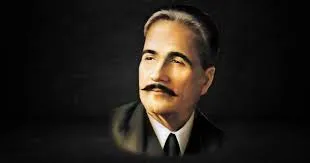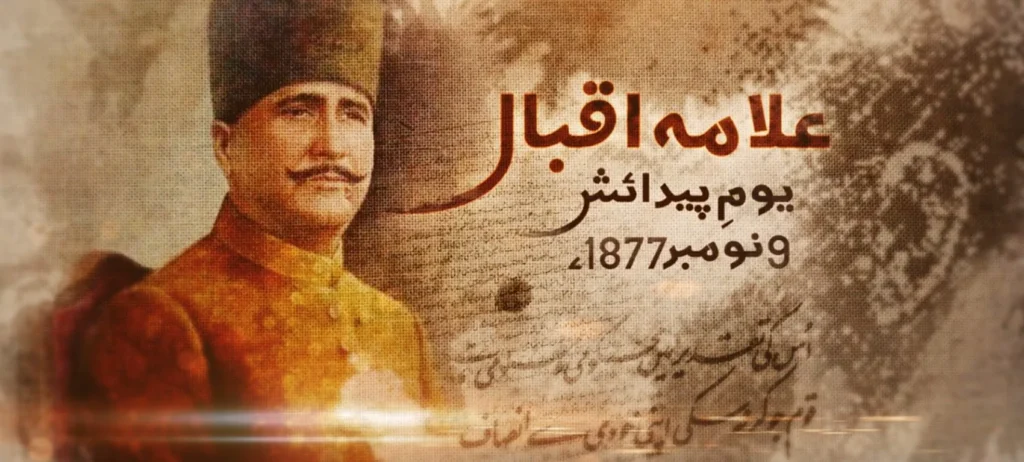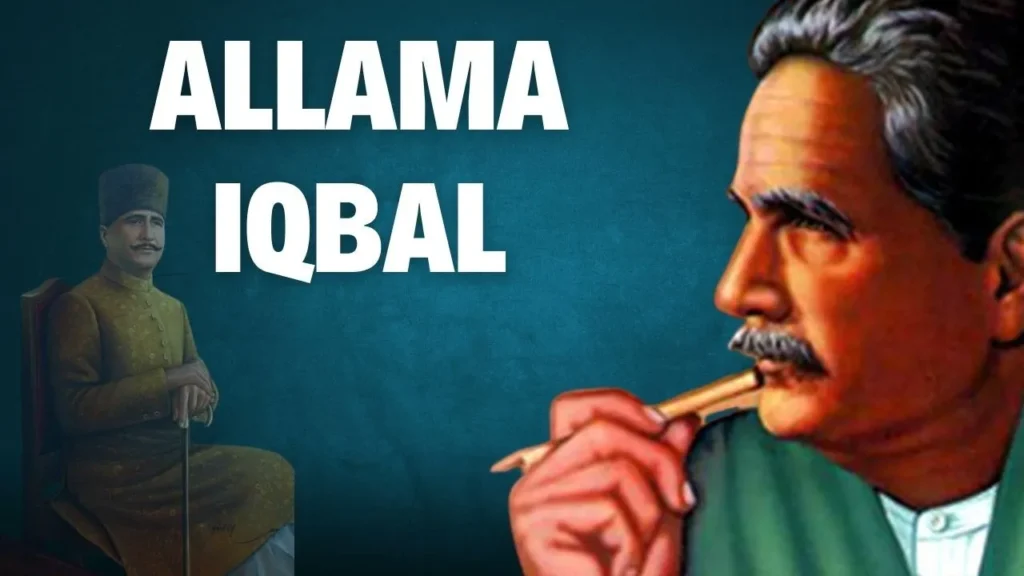Allama Iqbal is also known as Muhammad Iqbal. He was the first-ever poet, philosopher, and political leader of South Asia who was known for his immense literary talent and knowledge. Pakistan was given its ideological form on revolutionary ideas that brought nationalist feelings, self-consciousness, and Islamic philosophy as major themes.
He was able to play a prominent influential role inspiring the Muslim people of the subcontinent towards an independent state. Among Quaid-e-Azam Muhammad Ali Jinnah, Allama Iqbal also inspired this cause of Pakistan Movement fought for a separate homeland of Muslims, and their literatures are still very pertinent these days of 21st century for this age also.

About Early Life and Education:
Born on November 9, 1877, at Sialkot, Allama Iqbal was born in a traditional family wherein his father Sheikh Noor Muhammad was a tailor, and mother Imam Bibi was a devoted homemaker. He showed extraordinary intellectual skills from a very tender age, with a natural aptitude towards poetry.
Iqbal did his matriculation from the Scotch Mission College in Sialkot and then came to Lahore for higher education. He graduated with a degree in Bachelor of Arts from Government College, Lahore. Then, he went to Europe for higher studies and learnt at institutions like the University of Cambridge and the University of Munich. His time abroad made him aware of the West and its philosophy.

Literary Contributions
Known monuments and massive amounts of poetry, Allama Iqbal contributes largely to Urdu and Persian literatures; some of his popular books are “Shikwa” (The Complaint), “Jawab-e-Shikwa” (The Answer to the Complaint), and “Asrar-e-Khudi” (Secrets of the Self) and reflect command over words and deep philosophical and spiritual messages.
His poetry is full of self-realization, revival of Islam, and collective Muslim identity. He is influence as a poet and has inspired generations through his amalgamation of artistry with thought.
Major Themes of Iqbal’s Works
Allama Iqbal’s writings were based on strong themes of self-consciousness, Islamic philosophy, and oneness of the Muslim fraternity. The “Asrar-e-Khudi” presents what could be referred to as the aspect of selfhood and its dormant potential as “Khudi.”.
Iqbal envisioned a united Muslim Ummah and the revival of Islamic values for the betterment of the society. He wrote his works on the political and social issues through which Muslims under colonial rule had to face, and he earned a place in the annals of intellectuals.
Political and Social Activism
Iqbal’s influence was not limited only to literature but was equally spread in the political and social fields. As an active member of the All-India Muslim League, he strongly influenced and supported the rights of Muslims. His presidential address in 1930 became history and presented the concept of a separate Muslim state that eventually became Pakistan.
He always worked for the unity and education of Muslims, knowing clearly that these are the basic two requirements for their political and social upliftment. He motivated the Muslim race to a great extent, which could work for getting independence and self-governing freedom.
Philosophy and Ideas
Selfhood or “Khudi” formed the center piece of Iqbal’s thought, an injunction in his perception for self-developments and general development of the mankind. According to Iqbal, the humanity has a boundless capacity which needs to find practicality through man’s discovering self and self-realisation on account of his ambitions towards life. This ideology helped make man try and attempt something that lies beyond what could be termed as normative and made it extra- ordinary.
He was a robust anti-colonialist and imperialist, who preached political and economic independence. He believed Islam to be an all-inclusive philosophy of life that would transcend the present crises and integrate the diverse communities of Muslims.
Impact and Legacy
Allama Iqbal’s legacy is deep-rooted in Pakistan’s history and culture because his birthday has been celebrated as a national holiday, while his work remains the hub of the academic and political discourses in the country. Ideas of Iqbal keep inspiring efforts towards social, political, and educational reforms not only in Pakistan but the world over.
His philosophy of self-empowerment, unity, and justice remains an applicable solution for the challenges that Muslims have to face in the contemporary world. His vision for a progressive and self-dependent community remains a beacon for those who aspire for change.

Conclusion
He was a true representation of all the qualities-all in one. He was both poet, philosopher, and a visionary leader. His intellectual ventures presented the ideological bed for Pakistan and his lessons infused self-belief and resilience into the psyche of his followers.
Iqbal’s life was a lesson in self-improvement and community building that inspired people to work towards a better future. His legacy remains timeless, speaking to the hearts of people around the world, making him one of the greatest minds of the modern era.





